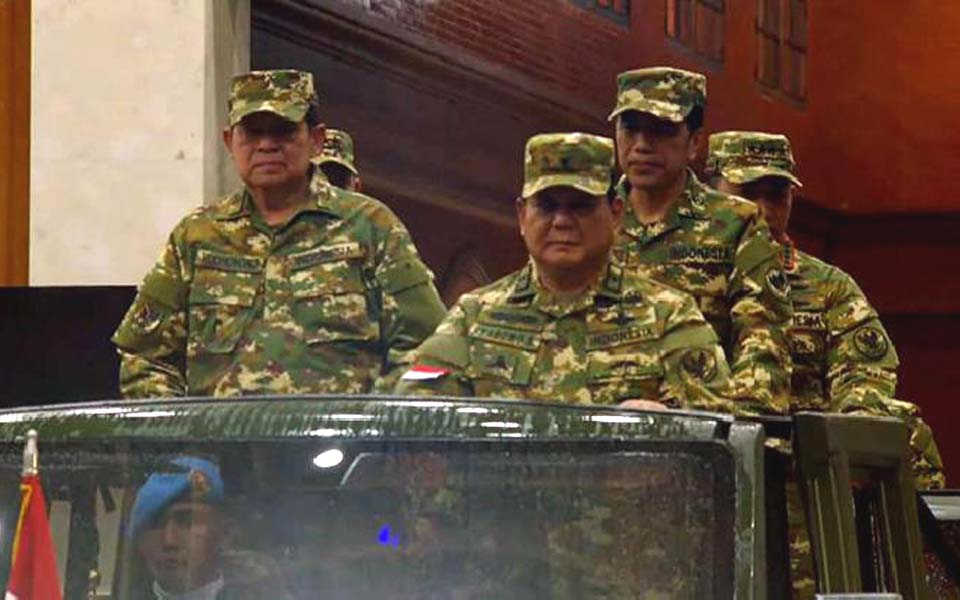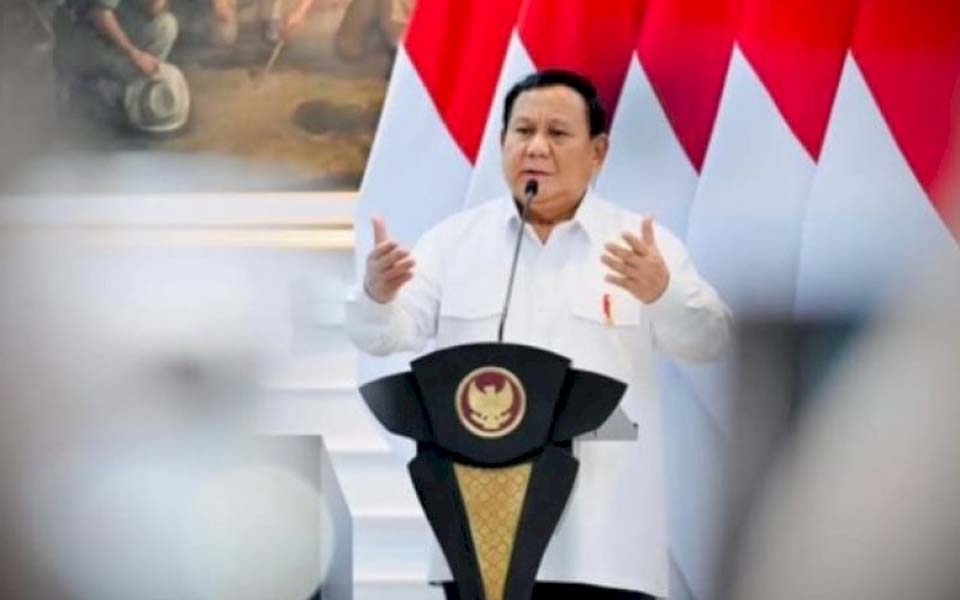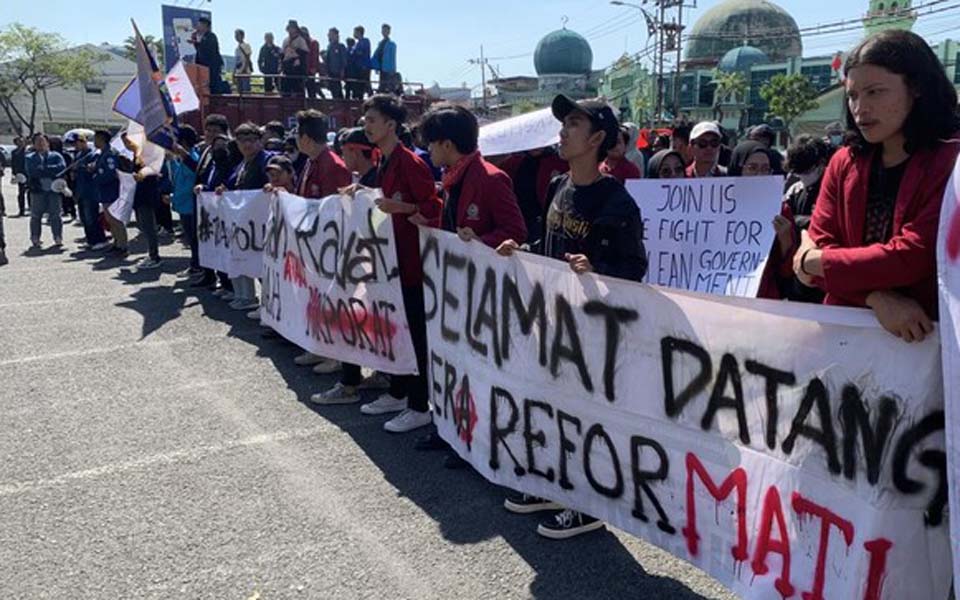A.J. Susmana – It has been 61 years since Indonesia declared itself as an independent nation. But the question so often asked by the cynical is: “Are we really free?”. Just listen to the song from the advertisement by the Corruption Eradication Commission or the version being sung by street buskers that seems to get those people wearing ties in their cars so hot under the collar: “Is it true were are liberated, while corruption is still rampant?”. People often answer: “Not yet”. Is not the slogan of the nationalists who to this day have still not stepped back from the struggle for independence still: “Freedom! Freedom! Freedom!? So what kind of freedom are we actually seeking?
Former President Sukarno, the proclamator of our nation, long ago declared that independence is only a golden bridge towards justice and prosperity. And across this bridge lies the justice and prosperity that must be created for the Indonesian people. But it turns out that the process of creating the justice and prosperity that lies on other side of this golden bridge has not been easy. It was not simply a matter of turning over a new leaf.
We recall how the slogan “the revolution is not yet finished” reverberated in the decade after the 1945 Declaration of Independence. Not just pointing out the way forward and who should build Indonesia, but “the revolution is not yet finished” also clearly pointed to the ideological conflict in the understanding of (our) Indonesian independence. Bung Karno [Brother Sukarno] put this forward in a new summation: the Indonesian people are still shacked by nekolim – neocolonialism and imperialism. Conversely, there were also many Indonesian people who yearned for the ‘normal’ times under Dutch colonialism.
Bung Karno even called for the need for berdikari – to stand on one’s own feet rather than to beg for foreign capital and its dictates saying: “Go to hell with your aid!”. Tri Sakti (the Three Powers) was also presented as a way to crate justice and prosperity for the Indonesian people: political sovereignty, economic independence and a cultural identity.
However the period of thunderous clamor filled with people’s mobilisations – marches, mass meetings and booming speeches, was brought to a close with the G30S1 affair in 1965. After Suharto’s New Order regime came to power, the Indonesian Communist Party (PKI) was accused as being the sole perpetrator of the G30S affair that had resulted in the villainous murder of seven generals. As a consequence, the PKI and its affiliated organisations were declared banned organisations. Communism could no longer be taught or disseminated in Indonesia. Thousands of the PKI’s activists and sympathisers were killed even though they knew nothing at all about the G30S affair. Many others were sent to jails throughout Indonesia including to the island of banishment: Buru Island.
General Suharto remained in power for 32 years. The way forward and how Indonesia should be built was turned 180 degrees away from the direction exposed by Bung Karno. There were no more speeches like those of the Ki Dalang (The Great Puppet Master). The people no longer mobilised and took too the streets. There was no debate or polemic. General Suharto appeared before the people so composed, calm, with his genial smile, as if to portray a society in harmony and without conflict. Foreign capital poured in to create skyscrapers and immaculate streets.
But behind all of this the mountainous debt piled up, the press was controlled, the political parties and the mass organisations unified under the sole state ideology of Pancasila2. Those who refused became enemies of the state and stigmatised with the stamp of the PKI or the extreme right – even farmers who were only defending their land because of inadequate compensation and workers demanding a wage rise. Pancasila became the sledgehammer of those in power to gag the sound of the people’s criticism, which was deemed to undermine the authorities. The jails were filled with pro-democracy fighters and the screams and cries of people being tortured by those above the law. And on occasion, death was all too close.
Democracy did not exist under Suharto, such was the conclusion drawn by students and the uneasy intellectual critics of the regime. Discussion groups were built. Mass actions launched. Until in the end the only course left was to bring down the New Order dictatorship. This was the quintessence of the poems by the rebels Rendra, Emha and Thukul3. The people augmented their ranks to break down tyranny. And Suharto fell. Democracy was won bringing with it the fresh breeze of reformasi and an opportunity for civilians to hold positions of power: a new President of Indonesia was elected much faster than had been imagined. We could finally breathe a little easier. Freedom.
But post the era of reformasi, we still continue to be dogged by the question of what kind of freedom do we want. Corruption is still rampant, the eviction of the poor continues, education and healthcare are increasingly expensive, concern over social issues appears to have declined, natural disasters come upon us repeatedly, the state debt piles up, there is moral crisis everywhere. We have abundant natural wealth: gold mines, copper, oil... but why have we become no more than coolies in our own country, living in poverty, dying of hunger in a sea of prosperity? This was not of course the freedom that we were seeking. Then what was?
It has been 61 years since Indonesia declared itself an independent nation. It should not be that poverty and suffering is still rampant. Democracy is the initial step in achieving genuine freedom, like the golden bridge declared by Bung Karno. Because of this therefore, the democracy that we have now won should also be able to further advance the people to achieve real justice and prosperity. Let the debate and polemic grow also in order to clarify the direction and how Indonesia should be built. Because, we no not need to feel uncomfortable about the growth of the new political parties in the lead up to the 2009 general elections.
Aside of course from it being a reflection of the democracy (read a feeling of freedom) that was won post the New Order dictatorship, the growth of new political parties also clearly reflects just how complex the issues are that are being faced by the Indonesian people. The duty of the government should be then to further guarantee and strengthen the mechanisms of democracy as fairly as possible for the Indonesian people as a whole. The people themselves have already demonstrated their power in the struggle for democracy, as was shown in the days of May 1998, and don’t forget July 27, 19964.
It is under this umbrella of democracy that we can put aside factional egos for the sake of solving the urgent problems of the people: To unite, to join arms, reaffirm the meaning of our freedom and if necessary reignite the fight for independence. At the very least to fight against again becoming a nation of coolies as was embraced in the dream of our struggle for independence long before 1945.
[A.J. Susmana is an alumnus of the Gajah Mada University faculty of philosophy and a deputy chairperson of the Peoples Democratic Party (PRD).]















